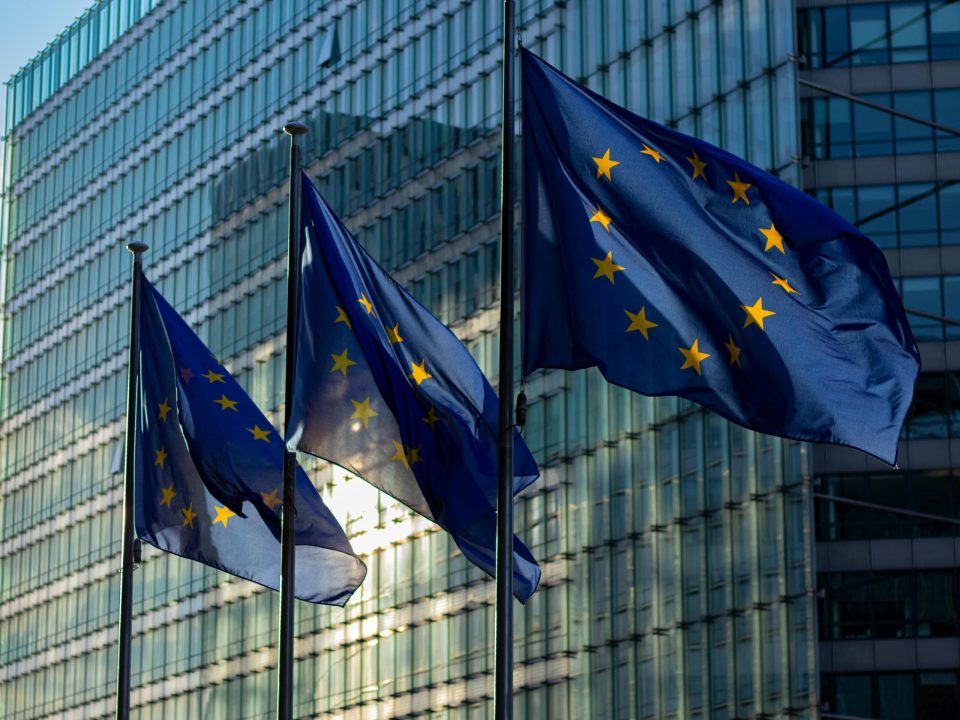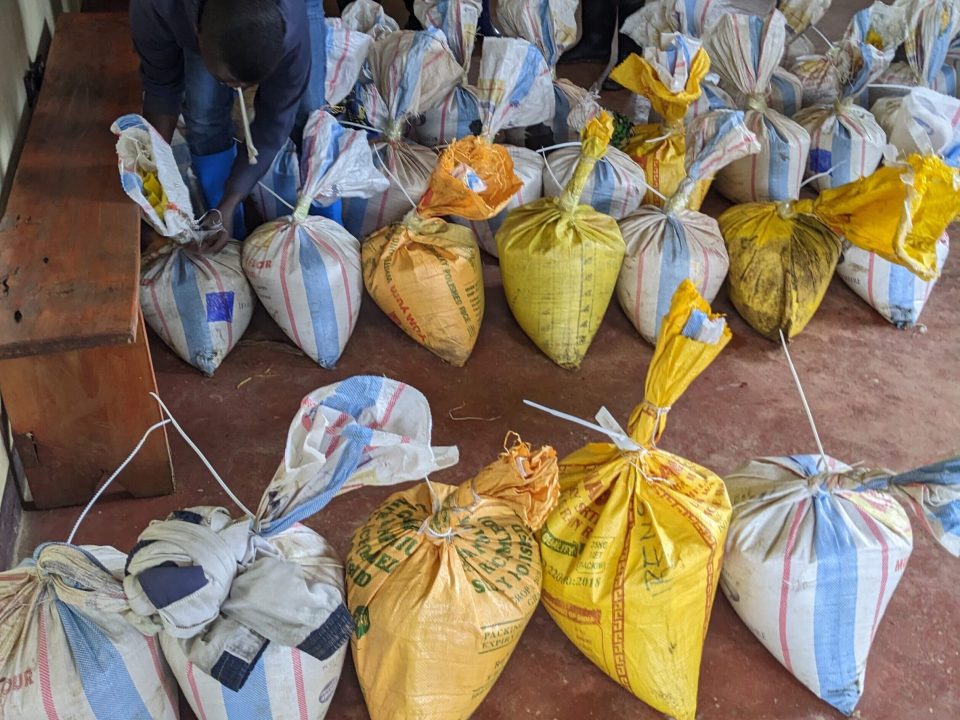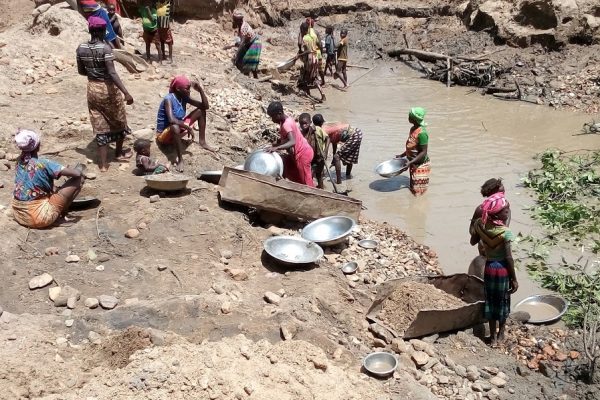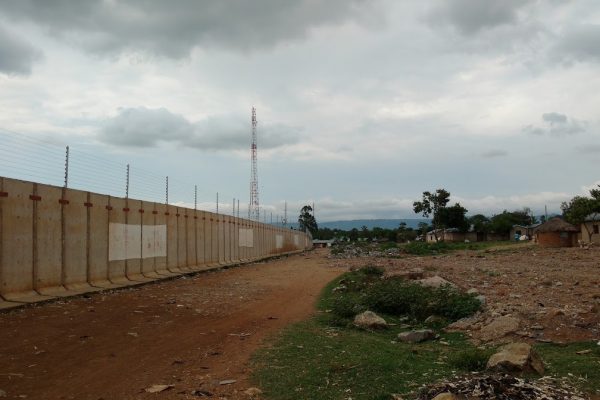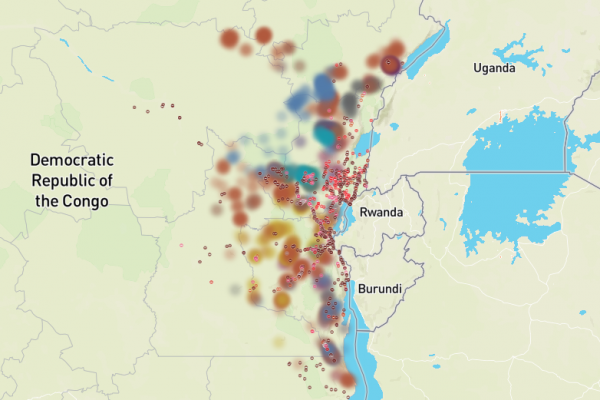Onafhankelijk onderzoeksinstituutvoor vrede, duurzame ontwikkeling en mensenrechten.
Laatste publicaties
The Democratic Republic of the Congo (DRC) is an important player in the global diamond industry, with considerable untapped potential. This report discusses the current state of play in the DRC’s diamond mining sector, including production trends, key challenges, as well as efforts and opportunities to revive the sector and to increase its impact on local development and socio-economic well-being.
Greater West Africa is undergoing significant turmoil. In the past five years, more than half of the region’s countries have experienced a coup attempt (a growing threat across the continent) or are confronting armed secessionist movements. While some countries have made progress in confronting the growing threat of armed violence, other states’ abilities to govern have deteriorated. The ready supply of illicit small arms and ammunition—and sometimes even heavy weapons systems—facilitates violent extremism and undermines the rule of law.
By the morning of January 29th, the rebels largely controlled the strategic city of Goma. To provide a quick and understandable explanation of the causes of this humanitarian crisis, the role of natural resources, and in particular minerals, is often overemphasized. While mining and mineral trade inevitably play an important role — being a vital part of the local economy — it is important to assess economic assets more broadly, as well as political interests and social grievances.
The EU Corporate Sustainability Due Diligence Directive (CSDDD), adopted in June 2024, represents a significant effort to enforce corporate accountability for human rights and environmental impacts. However, the Directive’s application to the arms sector is limited due to exclusions in downstream activities such as the sale and use of arms. These exclusions potentially create gaps in accountability, allowing companies to avoid addressing human rights risks linked to the end-use of their products. However, this IPIS Insight argues that the exemption of the arms sector is not as clear-cut as it might appear.
The defence sector, characterized by complex and sensitive supply chains, faces growing international scrutiny to mitigate risks related to human rights violations, conflict financing, and environmental harm. While the sector faces a unique combination of challenges, the report assesses these challenges individually and demonstrates that valuable lessons can be drawn from other industries. It draws vital lessons from the technology and minerals sectors—particularly high-risk supply chains for gold, tin, tungsten, tantalum, and diamonds—to help the defence industry accelerate the integration of effective due diligence practices.
The European Union’s ‘Conflict Minerals’ Regulation (CMR), which came into effect in January 2021, aims to prevent the trade in minerals that finance armed conflict and human rights abuses. However, both a formal evaluation by the European Commission and one conducted by civil society (IPIS/PAX, 2023), highlight significant shortcomings in the implementation and impact of the Conflict Minerals Regulation. This policy paper explores these findings and offers recommendations to enhance the regulation’s effectiveness.
Building on previous experience in Uganda, the Belgian organisation Eight World vzw started in October 2021, an Unconditional Cash Transfer (UCT) pilot project in a village in an artisanal mining zone in the territory of Pangi, in Maniema province, in the eastern Democratic Republic of Congo (DRC). IPIS has undertaken a comprehensive study to evaluate key indicators related to the socio-economic, physical, and mental well-being of UCT recipients, and provide insights into the impact of the UCT programme on beneficiaries.
Nieuws
In March 2025, IPIS successfully launched KUFUATILIA, its civil society organization (CSO) incident monitoring scheme for the mining sector, in Tanzania’s Mara region. KUFUATILIA is(...)
At its 2024 plenary meeting in Dubai, the Kimberley Process (KP) decided to lift the 11-year-old embargo on rough diamond exports from the Central African(...)
Laatste briefing
Schrijf je in voor IPIS updates
Do you want to receive the IPIS briefing with a selection of articles, news and updates on natural resources, armed conflict, business and human rights, and arms trade? The IPIS briefing also includes a topical editorial and related articles, and updates on IPIS’ research findings, new maps, reports and briefings.




